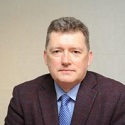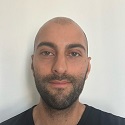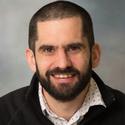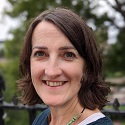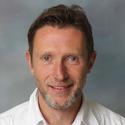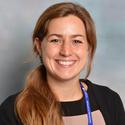Pathways to Research Careers in Medicine
Guide for Medical Students at the University of St Andrews
A summer project completed by Martina Schatz
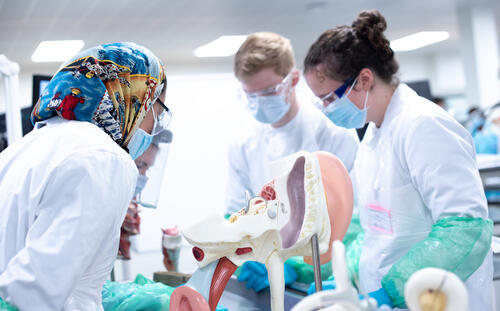
What is the importance of research in our society?
Nowadays there is a growing stigma that you can either become a full-time researcher or a medical professional for the NHS, and that it is impossible to balance both contemporarily.
But what types research oppurtunities are there for medicine students and doctors? How can you join research projects and at what point of your career is it possible?
These are all questions that this project aims to answer, giving medical students a greater understanding about the world of research within medicine.
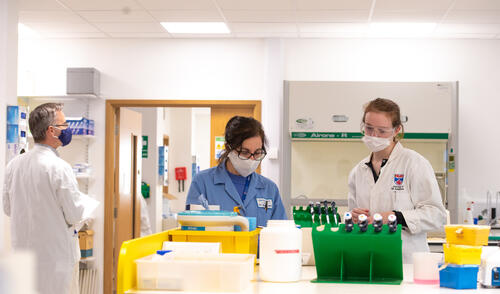
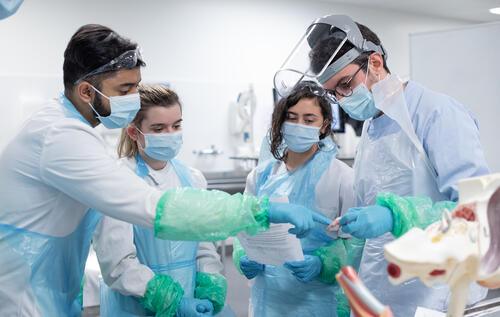
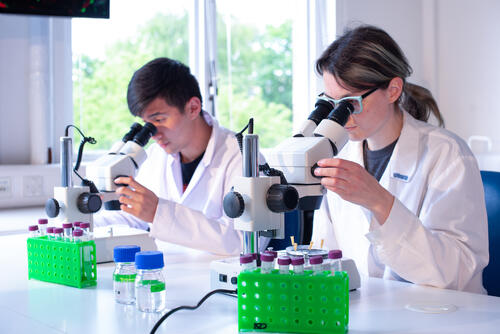

What are the different types of research?
Research is vital within the medical field because it allows for the improvement of health of millions of patients and fosters development for the future of clinical practice. The two main types of research can be categorised as qualitative and quantitative research. Quantitative research incorporates numerical, non-descriptive, stastistical evaluation of information, while qualitative encompasses more exploratory, descriptive work focused on why and how decision making and reasoning occurs.
Additionally, there is a great variety of research within the medical field, some examples ranging from topics regarding global health to research projects on poor prognosis cancer or looking at inequalities in healthcare systems. Depending on the particular interest of each person the focus can be more on lab-based work, practical research convergent on clinical work or even in public health medicine. Not all research within the medical field is based on clinical trials, such as research on the improvement of healthcare systems in developing countries as well as the determinants of ill health and poverty and many more projects.
There are no restrictions to what type of research to go into and if there is motivation and interest, opportunities can arise that will allow you to get involved with different types of projects along the course of a medical career.
– Dr Frank Sullivan, Director of Research at the University of St Andrews



What can you do to get involved in research now?
A great way to start getting involved within the world of research is to start early in medical school. During the year we always have a lot of studying to do and we are not left with much of free time to dedicate to research projects, therefore if there is an interest a good idea would be to participate and get involved in summer projects. The university offers opportunities and these can allow you to start collaborating with professors on useful projects to further your knowledge. Alternatively, there are opportunities to join essay competitions and win prizes and gain some experience doing some independent work.
Getting involved with Bute Medical Society through their events and conferences regarding this topic can be a useful first contact.
Additionally, medical students at the University of St Andrews are given protected time dedicated to writing a research dissertation in 3rd year. If research is something you are considering alongside a clincal profession putting in some extra effort to attempt to publish your dissertation as a research paper would be an excellent way to enter this pathway.
At end of medical school all students in the UK are required to perform a medical elective within the country, or abroad. This could be an additional opportunity to get involved with research and if interested in working abroad this would allow you to gather experiences collaborating in different environments.
– Dr Andrew Blaikie, Senior Lecturer at the University of St Andrews
When can you get involved after medical school?
After graduating medical school the standard timeline mecical professionals follow is outlined in the diagrams below:
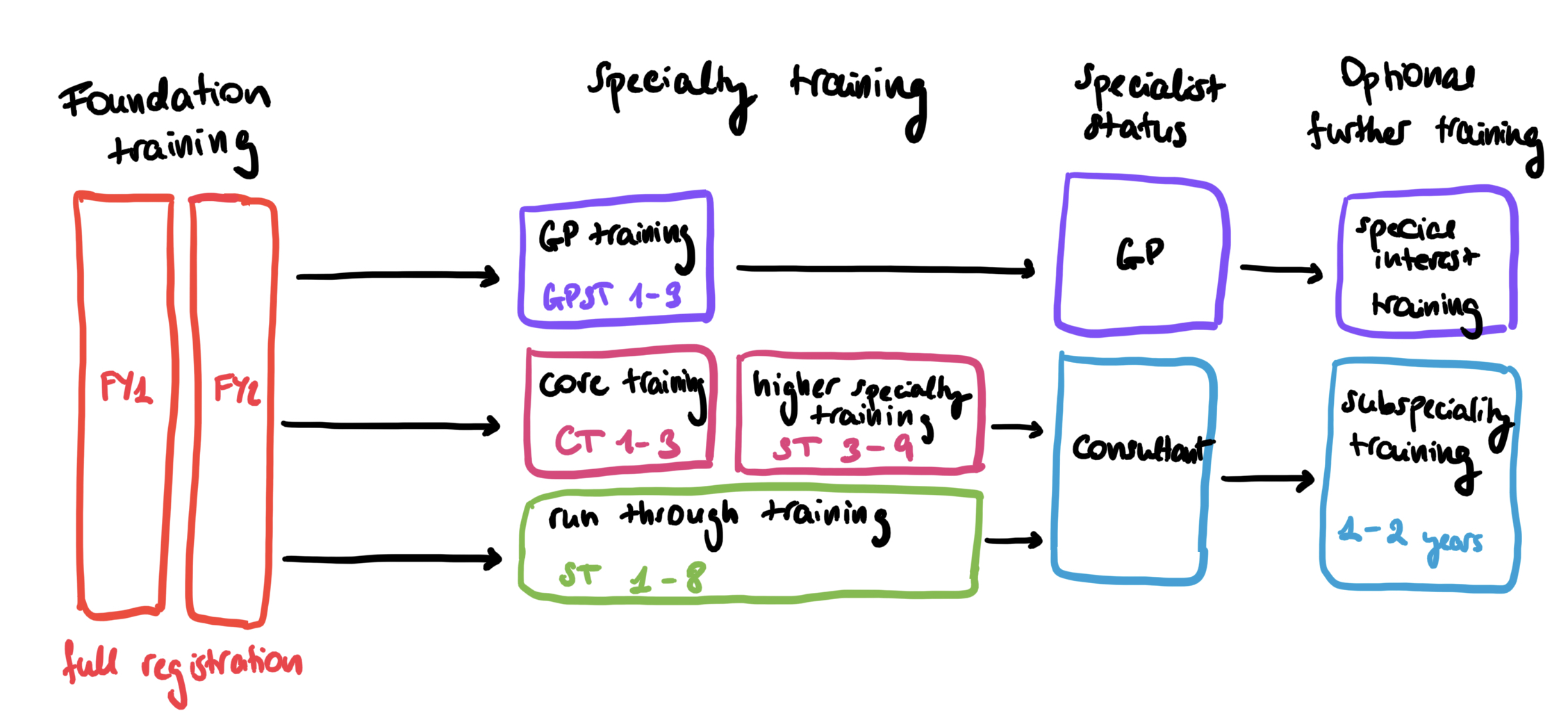
What is the Specialised Foundation Programme?
Rather than performing a standard foundation track, a specialised foundation track (previously named AFP) can be pursued with focus on research and education alongside clinical practice. The AFP track is open to medical students who are considering an academic career in clinical research. During the two year programme doctors are able to gain research and teaching skills, as well as their foundation programme of basic clinical competences. The types of programmes you get involved in vary according to location and individual preferences, although you tend to have a greater choice in where you end up compared to the standard foundation programme.

After specialisation, time can be taken to pursue research and a rota can be composed whereby weekly work is split up between time dedicated for research and time in the clinical with patients. This allows for doctors to integrate themselves in both environments and it is important to view how there are many oppurtunities for research alongside clinical work, it it just a matter of being flexible and collaborating with institutions such as universities to balance out both careers.

